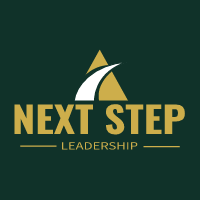Old School or New Age? What's Better?
In two separate moments this week, the notion of old school vs new age parenting came up. One was a light-hearted social media post contrasting the styles, and the other was a conversation with a prospective client — let’s call her Jo.
We talked about our mothers and how similar they were in their approaches. I shared how my mum’s go-to phrase — "I don’t get sick; I’m a horse" (which sounds more, umm, poetic in Afrikaans) — shaped my own outlook as a parent. We both had memories of getting hurt and being met with: "Well, it’s not broken or bleeding much. You’ll be fine." Or when we felt too sick for school: "Go to school and see how you feel by lunch. If you’re still unwell, I’ll come get you." And, of course, by mid-morning, we’d have forgotten about the supposed illness.
Then Jo told me about the time her sister actually broke her ankle, but their mum didn’t take her to the doctor for two days because she wasn’t convinced it was serious enough. Her sister lived (and is a healthy adult and parent now), but in hindsight, probably not the best judgement call on Mum’s part.
I’ll admit, I lean towards old school parenting — but I also see the pitfalls in going too far. Or rather, my wife is great at helping me see when I’m getting carried away, which helps balance out the overall parenting experience.
Relevance to our own lives
If you’re wondering where I’m going with this — this isn’t just story time. The way we treat ourselves can also swing between the old school and new age mindsets.
Some of us are too tough on ourselves, expecting to just harden up at every sign of weakness. When we default to this, we often end up bitter, resentful, or emotionally detached. We either get caught up in our own idea of being indestructible or suppress our emotions so much that we become unapproachable.
On the other hand, some of us go too easy on ourselves, allowing breaks every time life feels mentally or emotionally hard. We become so unused to pushing beyond discomfort that we lack resilience. We fail to hold ourselves accountable and, in the process, become victims of our own over-forgiveness.
The result
The old schoolers often ignore their bodies’ warning signs — until they burn out or develop stress-related health issues. The new agers, on the other hand, may struggle with mental health challenges because they haven’t built the resilience to withstand life’s difficulties.
So, which is better?
My conclusion: neither. They’re both flawed because we tend to frame things as an either/or choice. But like most things in life, it’s about finding the right balance.
That balance starts with understanding ourselves — our tendencies, patterns, and blind spots. From there, it’s about recognising the context and making intentional adjustments instead of swinging to extremes.
Where do you see yourself?
Are you tougher on yourself than necessary, or do you sometimes let yourself off the hook too easily? Have you found a balance that works, or do you tend to lean too far in one direction? I’d love to hear your thoughts!
If you’re unsure or struggling to find that balance, you’re not alone. Sometimes, an outside perspective helps us see what we might be missing.
For a FREE conversation about where you sit on this spectrum — and how to bring more balance into your life — book a time to chat here: Complimentary strategy session. Let’s figure it out together.
